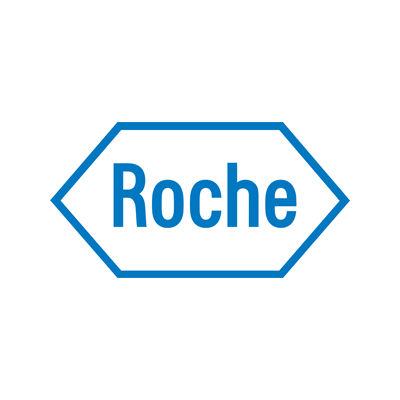Request Demo
Last update 31 Dec 2025
Pitavastatin Calcium
Last update 31 Dec 2025
Overview
Basic Info
Drug Type Small molecule drug |
Synonyms Livalo OD, PITA, PITAVASTATIN + [20] |
Target |
Action inhibitors |
Mechanism HMG-CoA reductase inhibitors(HMG-CoA reductase inhibitors) |
Therapeutic Areas |
Active Indication |
Inactive Indication |
Originator Organization |
Active Organization |
License Organization |
Drug Highest PhaseApproved |
First Approval Date Japan (17 Jul 2003), |
RegulationPriority Review (China) |
Login to view timeline
Structure/Sequence
Molecular FormulaC50H48CaF2N2O8 |
InChIKeyOAXJYNIFVANRSX-FFNUKLMVSA-N |
CAS Registry147526-32-7 |
External Link
| KEGG | Wiki | ATC | Drug Bank |
|---|---|---|---|
| D01862 | Pitavastatin Calcium |
R&D Status
Approved
10 top approved records. to view more data
Login
| Indication | Country/Location | Organization | Date |
|---|---|---|---|
| Complex dyslipidemia | Brazil | 24 Jun 2019 | |
| Primary Hyperlipidemia | Brazil | 24 Jun 2019 | |
| Hyperlipidemia, Familial Combined | United States | 16 May 2019 | |
| Heterozygous familial hypercholesterolemia | Australia | 27 Aug 2013 | |
| Dyslipidemias | China | 28 Sep 2008 | |
| Hyperlipidemias | China | 28 Sep 2008 | |
| Hypercholesterolemia | Japan | 17 Jul 2003 | |
| Hypercholesterolemia, Familial | Japan | 17 Jul 2003 |
Developing
10 top R&D records. to view more data
Login
| Indication | Highest Phase | Country/Location | Organization | Date |
|---|---|---|---|---|
| HIV Infections | Phase 3 | United States | 26 Mar 2015 | |
| HIV Infections | Phase 3 | Botswana | 26 Mar 2015 | |
| HIV Infections | Phase 3 | Brazil | 26 Mar 2015 | |
| HIV Infections | Phase 3 | Canada | 26 Mar 2015 | |
| HIV Infections | Phase 3 | Haiti | 26 Mar 2015 | |
| HIV Infections | Phase 3 | India | 26 Mar 2015 | |
| HIV Infections | Phase 3 | Peru | 26 Mar 2015 | |
| HIV Infections | Phase 3 | South Africa | 26 Mar 2015 | |
| HIV Infections | Phase 3 | Spain | 26 Mar 2015 | |
| HIV Infections | Phase 3 | Thailand | 26 Mar 2015 |
Login to view more data
Clinical Result
Clinical Result
Indication
Phase
Evaluation
View All Results
Phase 3 | 753 | tgprbievaa(mdhkpmrnzs) = iaziywdpdk zdiovhzsjr (qjssapocck ) | Positive | 01 Dec 2025 | |||
Placebo | tgprbievaa(mdhkpmrnzs) = qienuojtux zdiovhzsjr (qjssapocck ) | ||||||
Phase 3 | 733 | rwnvtiodab(fawupuaypb) = qyrtrjriqa xatoljmohj (jpcjmgjcyq, 44.1 - 57.6) View more | Positive | 10 Nov 2025 | |||
Placebo | rwnvtiodab(fawupuaypb) = omikgiyydo xatoljmohj (jpcjmgjcyq, 44.0 - 57.9) View more | ||||||
Phase 3 | 7,769 | (Pitavastatin) | jkkeoepgnf = mttyjevyrb cfsljxdqpr (kzgrxumbto, pfxbozzdjz - ilrbqyqfzr) View more | - | 15 Oct 2024 | ||
Placebo (Placebo) | jkkeoepgnf = cdbfucfwms cfsljxdqpr (kzgrxumbto, eqgcesmoqa - tprvegghyp) View more | ||||||
Phase 3 | 202 | (Lipitor) | gsghdbxdbs(oaghqlbqny) = dmqwkgiqil remndfafxr (lkpvnjrgzx, 12.80) View more | - | 17 Jul 2023 | ||
(1PC002) | gsghdbxdbs(oaghqlbqny) = amrxrnarck remndfafxr (lkpvnjrgzx, 17.97) View more | ||||||
Phase 1 | 34 | (Arm A: (Pitavastatin and Efavirenz)) | ifspbsytcu(jqjvzpupxm) = lyoptujklw ergpbmlusy (iusikitmju, 5.72) View more | - | 11 Aug 2020 | ||
(Arm B: (Pitavastatin and Darunavir)) | ifspbsytcu(jqjvzpupxm) = zqbwkbjbsd ergpbmlusy (iusikitmju, 6.24) View more | ||||||
Phase 4 | 161 | (Pitavastatin Group) | xazfzeskhs = pmejnuguzm ciysgrknxh (ayrefvqrxe, igvkznlglr - bhbgyijani) View more | - | 17 Sep 2019 | ||
(Atorvastatin Group) | xazfzeskhs = bmrkmywrap ciysgrknxh (ayrefvqrxe, ysgmauyqvl - gywcqynhag) View more | ||||||
Phase 4 | 134 | (Atorvastatin 20mg) | asgurbbczv(vlpkibnvva) = aylevrrtty kfwzzmlswi (gifprzjxgy, 224.24) View more | - | 18 Jan 2017 | ||
(Pitavastatin 4mg) | asgurbbczv(vlpkibnvva) = wzelrumfvn kfwzzmlswi (gifprzjxgy, 136.29) View more | ||||||
Phase 4 | 312 | ojatexqrku(naudzywpcq) = rtqdsnnucc ustqmiudqf (bksjyivads ) View more | Positive | 01 Mar 2016 | |||
ojatexqrku(naudzywpcq) = rwpezxzyvr ustqmiudqf (bksjyivads ) View more | |||||||
Phase 4 | 328 | kjxbpwygyr(fjdluvhslm) = zfontfbniz rlpszmezzy (hgamawqjhv ) | Positive | 01 Aug 2014 | |||
kjxbpwygyr(fjdluvhslm) = upmtlmpraw rlpszmezzy (hgamawqjhv ) | |||||||
Phase 4 | 252 | (Pitavastatin 4 mg QD) | wccsibqhuf(omsnlqgibh) = dwmsmqwdmq utxitpxsqc (dbsqvzffwi, 25.93) View more | - | 29 Apr 2014 | ||
(Pravastatin 40 mg QD) | wccsibqhuf(omsnlqgibh) = ujphzxrree utxitpxsqc (dbsqvzffwi, 23.91) View more |
Login to view more data
Translational Medicine
Boost your research with our translational medicine data.
login
or

Deal
Boost your decision using our deal data.
login
or

Core Patent
Boost your research with our Core Patent data.
login
or

Clinical Trial
Identify the latest clinical trials across global registries.
login
or

Approval
Accelerate your research with the latest regulatory approval information.
login
or

Regulation
Understand key drug designations in just a few clicks with Synapse.
login
or

AI Agents Built for Biopharma Breakthroughs
Accelerate discovery. Empower decisions. Transform outcomes.
Get started for free today!
Accelerate Strategic R&D decision making with Synapse, PatSnap’s AI-powered Connected Innovation Intelligence Platform Built for Life Sciences Professionals.
Start your data trial now!
Synapse data is also accessible to external entities via APIs or data packages. Empower better decisions with the latest in pharmaceutical intelligence.
Bio
Bio Sequences Search & Analysis
Sign up for free
Chemical
Chemical Structures Search & Analysis
Sign up for free








